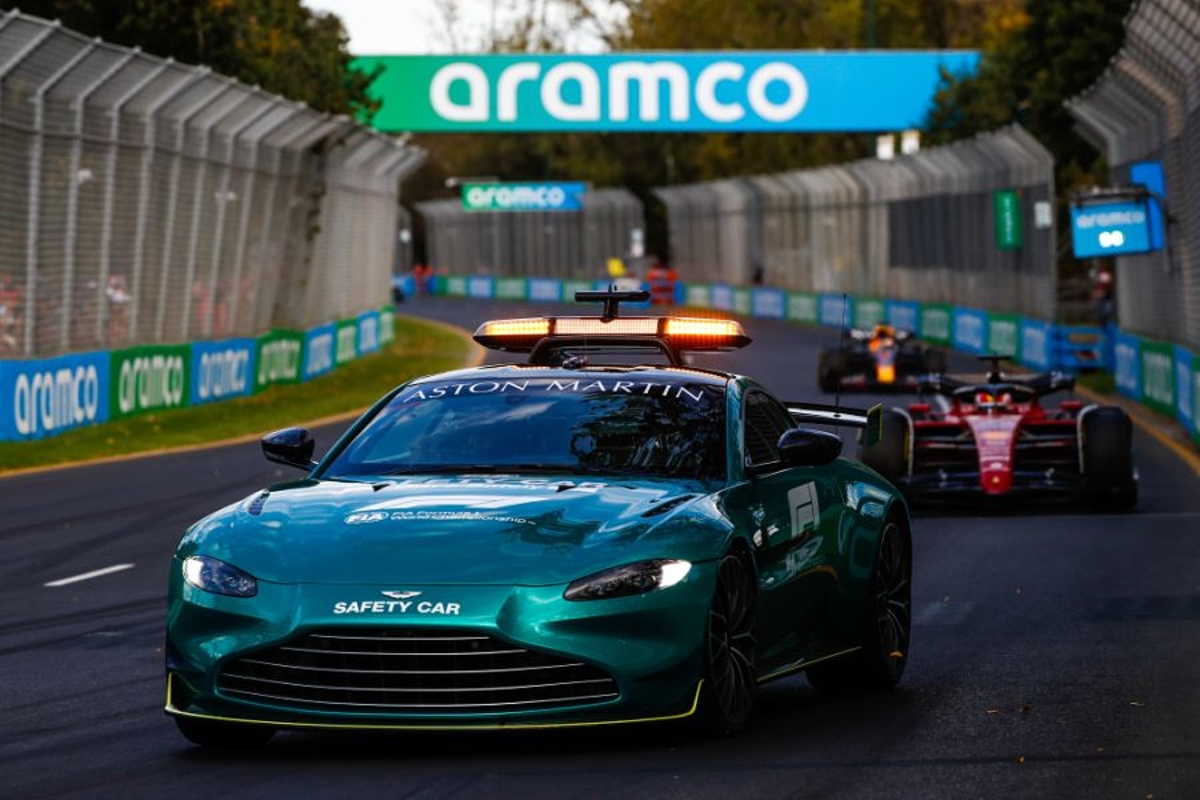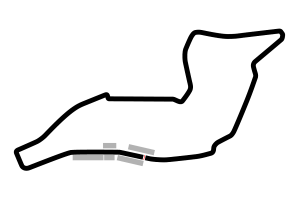F1 governing body, the FIA, has struck back after a number of drivers criticised the bespoke Aston Martin Vantage's lack of pace during the Australian Grand Prix.
Max Verstappen was among the drivers to call out the lack of pace of the safety car last weekend in Melbourne with the world champion describing it as being "like a turtle".
George Russell stated his belief that the Mercedes safety car is up to "five seconds" per lap faster than the Aston Martin, but the FIA has dismissed this criticism and reminded the paddock of the primary function of the vehicle.
"In light of recent comments regarding the pace of the FIA Formula 1 safety car, the FIA would like to reiterate that the primary function of the FIA Formula 1 safety car is, of course, not outright speed, but the safety of the drivers, marshals and officials," said an FIA statement.
"The safety car procedures take into account multiple objectives, depending upon the incident in question, including the requirement to 'bunch up' the field, negotiate an incident recovery or debris on track in a safe manner and adjust the pace depending on recovery activities that may be ongoing in a different part of the track.
"The speed of the safety car is therefore generally dictated by race control, and not limited by the capabilities of the safety cars, which are bespoke, high-performance vehicles prepared by two of the world's top manufacturers, equipped to deal with changeable track conditions at all times and driven by a hugely experienced and capable driver and co-driver."
Saftey car impact "equal" for all
Although drivers can lose positions if the safety car is called to the track at an unfortunate moment that allows a rival to gain complete a cheap pit stop, the impact on tyre temperatures and performance loss whilst following the vehicle, claims the FIA, is equal for all.
The statement added: "The impact of the speed of the safety car on the performance of the cars following is a secondary consideration, as the impact is equal amongst all competitors who, as is always the case, are responsible for driving in a safe manner at all times according to the conditions of their car and the circuit."
Related

















































 Grand Prix du Canada 2025
Grand Prix du Canada 2025  Grand Prix of Austria 2025
Grand Prix of Austria 2025  Grand Prix of Belgium 2025
Grand Prix of Belgium 2025  Grand Prix of Hungary 2025
Grand Prix of Hungary 2025  Grand Prix of Azerbaijan 2025
Grand Prix of Azerbaijan 2025  Grand Prix of Singapore 2025
Grand Prix of Singapore 2025  Gran Premio de la Ciudad de Mexico 2025
Gran Premio de la Ciudad de Mexico 2025  Grande Prêmio de São Paulo 2025
Grande Prêmio de São Paulo 2025  Qatar Grand Prix 2025
Qatar Grand Prix 2025  Grand Prix of Abu Dhabi 2025
Grand Prix of Abu Dhabi 2025 